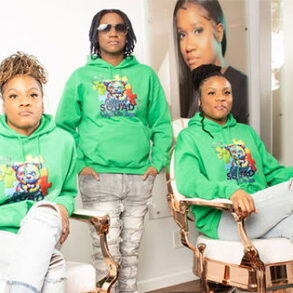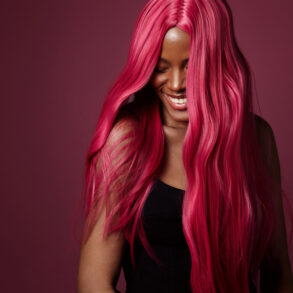
Hey Dr. NerdLove,
I’ve been using dating apps and I’m starting to think that all they do is make me feel awful with no upside. Here’s the deal: I’m a guy in my early 30s, I’m trying to date and it seems like the only way to really do so these days is to get on the apps. But I’m finding myself stuck in a weird sort of limbo.
First off, it’s like I’m invisible out there. My match rate? Practically zilch. And on the rare occasions I do get a little ping saying someone’s interested, more often than not, they just don’t spark any sort of attraction for me. Now, don’t get me wrong, I’m all for personality over looks, but there’s got to be at least some initial chemistry, right?
But here’s the real kicker: Every time I swipe and wait and get nothing in return, I can’t help but wonder if there’s something off about how I come across or, really, just about my looks I’ve done everything people tell me – changed up my pictures, paid for A-List or Gold or whatever, had friends go over my profile, I’ve paid coaches for help, I’ve even sprung for professional pictures. I even went on Photofeeler to have folks rate my pictures. None of it helps at all. It’s like these apps are giving me a subtle nudge, saying, “Hey man, maybe you’re aiming too high?” or “Maybe this is the best someone like you could do?” I mean, if this is the kind of response I’m getting, do I really need to start second-guessing what I’m looking for in a partner? I keep feeling like I’m just being told over and over that what I want is just too much, I’m not good enough and I need to aim lower before anyone would even look at me. The apps were bad, the photo-feeler stuff made me feel even worse and honestly I feel like I’m slipping back into depression over this. I barely feel like going out or doing anything if this is all I’m ever going to get.
Am I just that hideous? What do I do here?
Best,
Feeling Swiped Out
So, I’ve said before that I get so many questions about being “too ugly to date” that if I had a nickel every time I got one, I’d be able to buy Twitter back from Elon and show him how you actually run a social media site.
But I pulled your letter, FSO, because this isn’t the typical “average-guy-who-mostly-needs-a-better-haircut” letter, but rather because this is an opportunity to talk about dating apps and how they work.
I’ve talked about many of the reasons why dating apps mostly suck these days. They can still be useful tools, but like most tools, they’re only useful if you understand how to use them properly. If you treat them as though they were the arbiter of literally anything, then yeah, you’re basically signing up to take 1d4 psychic damage every time you open the app.
Here’s the thing you’re missing: the results you get on dating apps aren’t a measure of anything other than the results you’re getting on dating apps. They’re not a reliable method of determining anything else – including and especially your relative “league” or level of attractiveness.
I should also note that this isn’t exclusively a male issue. This hits women too, for the very same reasons. Especially if you’re a woman of color.
First and foremost, you need to remember that when you use a dating app, you’re signing up for increased amounts of rejection. That has nothing to do with you being ugly or not; it has everything to do with the fact that you’re going to be putting yourself out there, far more often and with greater frequency, which means that you’re going to get rejected more often, too. Most people aren’t going to try to approach twenty or thirty women over the course of an evening, but you can swipe or try to message more than twice that in the span of 15 minutes on Tinder. That means that the amount of rejection you’re courting will go up exponentially. This is part of the numbers game that is dating and you have to be prepared for that. It also means that you need to learn to not take rejection personally, especially at that scale. These are all strangers, people who you often didn’t know even existed before you opened Hinge; if you let their theoretically opinions destroy you, then you’ve given incredible power to random people who don’t know you from Prince Adam.
But there’s also the nature of the apps themselves.
Leaving aside the different, incompatible ways that men and women use the apps and the massive gender imbalances (upwards of 70/30 by some estimates), what’s happening is that, like so many social ills affecting our society today, you’re dealing with tech-bros’ assumptions about humans and human relationships… assumptions that rarely have anything to do with reality.
Take Tinder, for example. For a very long time, Tinder was using a variation of the Elo score. Elo was created as a way of ranking player skill in zero-sum games – games where is one winner and one loser – predominantly chess. Tinder used a variation that would “rank” you based on your swipes – both right and left – vs. who would swipe right or left on you. This is… not a great way to really measure anything except “is this person good or bad at online dating profiles”. And in fairness, a lot of guys suck at them – their profiles have nothing of substance and their pics are far more reflective of what they find powerful or striking rather than what women want to see in partners. In the years since, Tinder has stated that they no longer use the ELO score but instead use a different algorithm that involves swipes, super-swipes and trying to match things in your photos and profile text.
What this functionally does is affect your visibility; the higher your score, the more visible your profile is. So if you’re struggling with getting matches, a significant portion of the problem is that you’re likely not that visible to other users, for reasons that are (understandably, if frustratingly) opaque to the end user.
Tinder, however, isn’t alone in using algorithmic systems to try to “streamline” the dating experience. Hinge, OKCupid, Bumble… they all use similar algorithms. Most of them work on a similar “collaborative” model that’s akin to YouTube or Amazon’s “people who looked at X also bought Y” system. The more people who interact with a profile, the higher the profile goes in the algorithm, being shown to more people… which then makes it more popular. It’s akin to a popular show on Netflix or Hulu getting a major marketing push, while other shows languish in relative obscurity despite their quality. It’s very much a “famous for being famous” problem – profiles with high initial popularity just keep getting more engagement – and thus, visibility – because they keep being shown to more and more people.
This can be problematic in many ways, not the least of which because of how it unfairly penalizes people of color, especially Asian men and Black women, who already struggle especially Asian men and Black women,
The algorithms also are affected by your behavior. Almost every app with a swipe mechanic will penalize users who, for example, swipe right on everyone in hopes of getting more matches. On the other hand, if you get a match with someone that you’re not into but chat with them anyway, people like that incompatible match are going to see you more often because the algorithm prioritizes engagement; you’re engaging with these people so clearly they must be your type.
I would also note that sometimes the algorithms can just be hilariously so hilariously off that they’re not even wrong. I’m a straight, cis man and Hinge’s “most compatible” feature has repeatedly tried to match me with queer men and lesbians.
None of this is helped by the fact that most dating apps these days use swipe mechanics that discourage doing more than taking a quick glance at the first couple of photos, maybe looking at the profile and deciding “yes” or “no” in that instant. And those user-patterns, encouraged by the design of the app, end up affecting when and if you’re seen by others.
So not only are certain profiles getting continual boosts (that they don’t actually need), but users get stuck in a bubble that they aren’t even aware of, because they were using the apps in good faith, under the assumption that it was a fair and honest dealer. And while it’s understandable that they don’t want people trying to game the system for obvious reasons, the fact that there is no indication of how user behavior affects who you see and who sees you makes it incredibly difficult to use the apps effectively.
(In fact, things have gotten so bad that some people are turning to “date-me” docs – basically landing pages or Google Docs that serve as sort of dating resumes…)
It’s also worth noting that for many people, their appeal isn’t seen in still photographs or even short videos. That’s great if you’re someone who’s used to taking photos or is comfortable in front of a camera… but for most people, attraction comes from the holistic individual and can’t truly be measured except in person. Similarly, it’s very easy – especially if Tinder and Hinge or what-have-you put you in a filtered bubble – to miss out on people who you might actually be very compatible with, but who either portray themselves in ways that obfuscate that compatibility or don’t put it in their profile in the first place. But if you were to meet them in person and talk to them, you’d realize that someone who seems a poor match on paper is, in fact, your precise perfect flavor. It’s almost impossible for serendipity to happen on an app, nor is it easy to let the connection build and grow over time.
We as a species have been meeting and mating face to face for 99.999% of our species’ history. No app is going to be able to replace what we evolved towards.
So the issue isn’t that you’re ugly. The issue is, among many other things, that dating apps are poorly designed for their intended use case. It’s not made any better by grifters who don’t understand statistics, dodgy pseudoscientific “studies” that are actually just misreading limited user data and, yes, most straight men are really not good at presenting themselves in their best light.
There are some best practices that can help mitigate this – starting with deleting your account and starting over from scratch so that you’re not stuck dealing with the algorithm’s idea of who you should be into. But honestly? This is why I tell people that dating apps should be a supplement to how you meet people, not a replacement.
Apps can be useful if you want to increase the number of people you see, maybe even be surprised by who’s out there. They can be a godsend to queer people in particular, who are a very small percentage of the overall general population and frequently need their own spaces just to find one another. But in general, your best results are always going to come from trying to meet in person.
Good luck.
***
Hello DNL,
I’ve been following your column for some time and while I find your dating advice pretty solid, I’m more interested in developing close friendships in my life and not necessarily relationships.
A bit more about me, I’m a 30 plus straight male and I’ve recently had a chance to move out of my hometown to a place I’ve been dreaming about moving to for years for a new job. I finally make enough to afford my own place and still maintain a comfortable standard of living. Sadly, I’ve had to leave my friends from back home behind.
I’ve always had issues making friends, the ones I have are from long ago and many of the more recent ones are from my last job that I had to leave behind. While you mention going out to various activities and events to live life like you give a damn, there’s not a lot of them that I even find myself interested in.
I’d like to make more friends with some men but I can’t stand pretending to like or care about sports. The closest I have in common with some traditionally masculine men is a love for cars and the last meet up I went to for that I took off immediately when I saw nothing but older boomers there. Tabletop gaming or DnD isn’t as much fun either with strangers either for me as I kind of feel bored when I’m not playing with friends.
In terms of developing new hobbies, I’m kind of at a loss. Most of my interests are kind of solitary in nature and I’m not super inclined to start dancing or learning to cook. I understand that you need to have hobbies like this to meet your people but I can’t see myself really wanting to go to activities like this for more than a few times.
It’s not to say I’m not passionate about the hobbies I have, its more to do with the fact that other people may not appreciate that passion in something they don’t have any interest in. I’d like to work on getting that support system back up in a new town but I’m not sure how to go about with the above issues. I’d appreciate whatever thoughts you might have about this.
Thank you,
New Guy In A New Town
It sounds to me like part of your problem is that you have a lot of baked in assumptions, and a big part of what you need is to start broadening your horizons. If you want things to be different, you have to start doing things differently.
The first thing to consider is that I think you have a very narrow and limited idea about who you might be friends with or how you might meet them. You’ve written off broad groups of people, not because of who they are as individuals, but because of theoretical scenarios that exist primarily in your head.
One thing that’s worth considering is how often what we dislike or find intolerable in others is often a reflection of what we see in ourselves. Take, for example, when you say “other people may not appreciate that passion in something they don’t have any interest in.” This is very much a case of “the call is coming from inside the house” situation, seeing as you also say “I can’t stand pretending to like or care about sports”.
That’s a pretty solid indicator of one area where you’re having issues. You’re lamenting that other people have the same lack of interest or respect for other people’s passions when you won’t give them the same grace. If you can’t at least appreciate other people’s enthusiasm for the things they love, even if you don’t share it, then why should they?
This sort of mindset is precisely the sort of thing that is going to hold you back. Part of what makes somebody more charming or charismatic is simply being interested in others – being interested is interesting. If you’re going to write off entire swaths of people based on a hobby or passionate interest, you’re going to find yourself with a very narrow pool to choose from indeed.
Having an open mind and being willing to give more things and more people a fair shake is important if you want to build a new social circle. Right now, you’re putting up barriers between yourself and potential friends, when that’s the last thing you want. If you want to meet more people and, importantly, meet people who you could be friends with, you have to put yourself in fortune’s path, not walling off opportunities. And friends can come from a number of unexpected places.
Let’s take the idea that you’re going to have to pretend to like sports. We’ll come back to liking or pretending to care in a moment, but it seems as though you’ve landed on the idea that if a man likes sports, that defines his entire personality, or that liking sports is a sign that you and they are incompatible as friends. While yeah, there’re folks whose entire lives revolve around their local football team or their particular fandom… but it’s very rare indeed that you’re going to find someone for whom sports is their sole defining quality. In fact, what if I told you that there are many, anime-quoting, D&D loving nerds out there… who also enjoy sports? Or that people who love sports are also capable of enjoying the same sorts of hobbies you do?
Another possibility is that you may find overlap in interests in other areas. If you don’t like football but you’re into professional wrestling… that may be a place that the two of you find commonality. That can’t happen if you’re starting from a place of “well if they like X, I can’t hang with them.” That’s reasonable if, say, they’re into pushing anti-LGBTQ legislation, less so if it’s strictly about what you’re both passionate about.
This is an area where being both curious about others but also being able to communicate and relate to passion becomes important with regard to making friends. If you’re going to assume that Johnny BengalsFan is out of the running simply because he loves football, you will never know that he’s also playing a Baldur’s Gate 3 co-op campaign.
The same applies to relating to somebody’s passion or love for their hobbies. You may not share it precisely, but I’m willing to bet that you’re able to find overlap between their interest and yours. Fantasy football is as much of an RPG as tromping around Faerûn as a deep gnome warlock – the primary difference are that outcomes are managed by players on the field, rather than clicky clacky math rocks. You may not be into the game itself, but I bet you can find aspects remind you of the things you love and relate to that.
This applies in reverse, too; if you can explain why you love something and what it is you love about it, the people who you’re likely to be compatible with as friends are going to look for (or find) areas where they can relate.
You should also consider why you don’t like something and whether it’s time to give it another fair shake. I, like many nerds, never got into sports. Part of this was because of dealing with jock culture in middle school and high-school, sure, but another part was because… well since I was more bookish and solitary at the time, I never had anyone really to guide me through understanding the game through the eyes of someone who loved it. I was content to sit with the stereotype of the jock jerk and remain proud in my ignorance, as though it were a badge of honor. It was only later in life that I realized that no, sports can be fun as hell if you give it a chance.
Shit, even going to a game and just enjoying being around other people getting worked up can be entertaining, even if you’re not necessarily into the game itself.
Now, I’m hammering sports here, simply because it’s the most salient example from your letter, but this can be applied to other things, too. If most of your hobbies are solitary, and you can’t find a way to engage with them in a way that brings you in contact with other people, then you may want to explore other hobbies or interests that aren’t so isolated.
As I’m often saying: if you can’t find something that you’re directly interested in, you may need to bankshot it and find something that’s at least tangentially related to your interests. But if you can’t find even that… well, then it’s time to go exploring and trying new things just for the sake of trying them. You may still discover that they’re not for you and that’s fine… but at least now you know for sure, instead of letting yourself be hemmed in by boundaries that only exist in your imagination.
The other thing you have to consider is that you’re not going to find new BFFs right off the bat. The part you mention about not being interested in tabletop RPGs or board games with strangers? Well… they’re not going to become friends if you don’t give them a chance. The whole “strangers are just friends you haven’t met yet” is a cliché, sure, but it’s a cliché for a reason. Everyone’s a stranger until we get to know them. If you want to make close friendships, start with weak ties. From there it’s a matter of repetition and regularity.
In fact, repetition and regularity is another important part of finding new people – friends or romantic partners – in general. It doesn’t do you much good to go out and try new things if you go only once or go so sporadically that you rarely see the same people twice. Exposure and propinquity are part of how we foster relationships; the more often we encounter someone, the more chances we have to get to know them. That’s a lot harder to do if you go to a place once or only once every two to three weeks. How would you go about making friends with someone if you only had a 34% chance of seeing them?
This is why one of the things I tell people who want to make new friends or build a new social circle in a new city is to find places to go and go there regularly. Not “when I think about it” or “if I get a hankering” but to have a reason to make it their regular Wednesday hangout or part of what they do on Sundays. This lets you get to know the other regulars and means that if folks you meet there want to see you again, they know when they’re most likely to encounter you.
Repetition and regularity is also useful for fostering closer friendships and maintaining the ones you have. It takes upwards of 200 hours of time together to make a close friend. That’s hard to do on a sporadic schedule. Seeing someone regularly – say, once or twice every two weeks – makes it much easier to put in the time to get to that level of closeness.
This is especially true for someone like you, who’s in his 30s. As we get older, it can be harder to just go do shit; we have too many responsibilities and obligations. But if you know that your poker buddies get together every Thursday from 6 to 9, then you can make sure to carve out space for them. And if you can’t make it one time, then at least you know you can go the next time instead of hoping that the stars align in the next seven months.
So, TL;DR: start examining your preconceived notions, be open to letting people surprise you and recognize the restrictions you’re seeing in others are often reflections of what you see in yourself. Broaden your horizons of what you may find interesting and be willing to try things that you might think aren’t “you”. Embrace those weak ties in order to build stronger connections and let repetition and regularity make it easier for you to connect with potential friends.
Do this, and you’re going to find that making friends isn’t nearly as daunting a challenge as you expect.
Good luck.
—
This post was previously published on doctornerdlove.com and is republished on Medium.
***
You Might Also Like These From The Good Men Project
Join The Good Men Project as a Premium Member today.
All Premium Members get to view The Good Men Project with NO ADS.
A $50 annual membership gives you an all access pass. You can be a part of every call, group, class and community.
A $25 annual membership gives you access to one class, one Social Interest group and our online communities.
A $12 annual membership gives you access to our Friday calls with the publisher, our online community.
Register New Account
Need more info? A complete list of benefits is here.
—
Photo credit: Unsplash
This post was originally published on this site be sure to check out more of their content.








